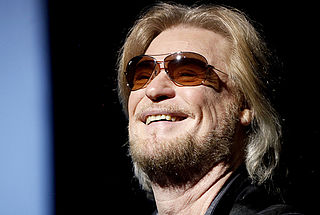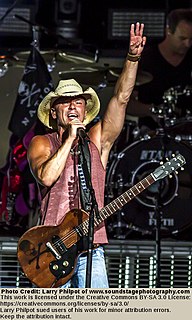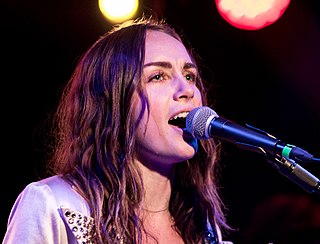A Quote by Princess Stephanie of Monaco
My mother sang very well. She proved this in her film 'High Society.'
Related Quotes
My mother didn't feel sorry for herself, she was left with no child support, no alimony at a very young age, with a child to raise, a high school education and she just figured it out. She didn't complain, she didn't rely upon government, she relied upon her own skill set, her own self confidence, her own drive in moxie and her own duty to me and her and she relied upon her family and her faith.
Well, when Eleanor Roosevelt's mother dies, she goes to live with her Grandmother Hall. And her Grandmother Hall is in mourning. She's in widow's weeds. She's in her 50s, but appears very old. And she's exhausted from raising rather out-of-control children. Her favorite daughter, Anna, has died (Eleanor's mother), and she has living at home two other sons, Vallie and Eddie. And they are incredible sportsmen, incredible drinkers, out-of-control alcoholics.
My mother is somebody who I think of as having just an intense close focus. She's somebody who really can pay very, very close attention to the thing she's focusing on for a very long period of time, and that has served her incredibly well in her professional career. She knows - the things she knows, she knows them just so deeply.
In my earliest of years, my mother was a huge force in my life. She was for all intents and purposes, a single parent. My father had abandoned us. He was an alcoholic and a physical abuser. My mother lived through that tyranny and made her living as a domestic worker. She was uneducated but she brought high principles and decent values into our existence, and she set lofty goals for herself and for her children. We were forever inspired by her strength and by her resistance to racism and to fascism.
The adolescent does not develop her identity and individuality by moving outside her family. She is not triggered by some magic unconscious dynamic whereby she rejects her family in favour of her peers or of a larger society.... She continues to develop in relation to her parents. Her mother continues to have more influence over her than either her father or her friends.
A lot of people say that Eleanor Roosevelt wasn't a good mother. And there are two pieces to that story. One is, when they were very young, she was not a good mother. She was an unhappy mother. She was an unhappy wife. She had never known what it was to be a good mother. She didn't have a good mother of her own. And so there's a kind of parenting that doesn't happen.
I definitely get my artistry and my vocal talent from my mother and mother's side. She sang in a jazz trio band so growing up my dad would always take me to see her play and she has a beautiful voice. When I was little and started to sing, she supported me and let that fire burn. She always knew what it took as a support system.
I've known Carolyn [Maloney] for years, by the way. I knew her when she was on the City Council and knew her when she was - when she was running, and we endorsed her very early when she ran for Congress, yet I didn't know some of the stories in here of herself and her struggle, and - and she makes a very - you know, it's - it pulls your heart as well as - but it's very practical.
My mother was the kind of person who was very much part of her tribe and very much a satellite of her tribe. She was the girl who left her family at the age of 17 and went to Washington. My mother was orphaned at three and then was brought up by my aunt Goldie. So, yes she belonged, but there was a part of her that didn't.
Delphine Seyrig is a very proper woman, from high society. She's from the Ferdinand de Saussure family, the structuralist. Old money. Swiss. Protestant. They were that type of well-educated people who could recognize a good artist before others, and she was like that. Even if it was against something inside her. Tell me one actress in 1972 in France, except Delphine, at her level, who would love Hôtel Monterey. No one.






































